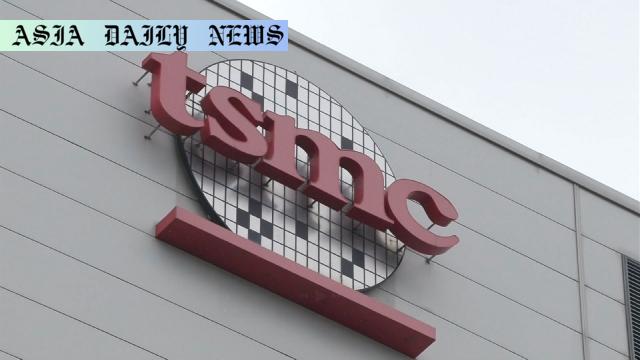TSMC, the world’s largest chipmaker, detects unauthorized activities, leading to arrests of employees over trade secret leaks.
Three TSMC employees were detained in Taiwan for alleged 2nm technology breaches.
The Taiwan High Prosecutors Office is investigating violations of national security law.
TSMC’s internal monitoring revealed signs of unauthorized activities.
The alleged leaks might involve a Japanese firm’s office also under scrutiny.

TSMC Employees Caught in 2nm Technology Breach
The Taiwan Semiconductor Manufacturing Company, commonly known as TSMC, recently uncovered a significant breach in its proprietary 2-nanometer chip technology. This discovery led to the detainment of three individuals, all of whom are either current or former TSMC employees, suspected of illegally acquiring sensitive information about this breakthrough technology. The case, currently under investigation by Taiwan’s High Prosecutors Office, highlights the increasing necessity for companies to bolster both internal and external security measures against industrial espionage.
Details of the Alleged Leak
Prosecutors allege that the accused individuals potentially passed on confidential details related to TSMC’s advanced 2nm chip technology to an external source. Taiwanese media speculate that these details may have been leaked overseas. If found guilty, their actions could cause economic repercussions for one of the world’s most valuable and innovative semiconductor firms.
Internal Monitoring and Immediate Action
TSMC identified the breach during routine internal monitoring. The company disclosed unauthorized activities that indicated a possible attempt to leak trade secrets. To mitigate risks, TSMC promptly conducted a thorough internal investigation and subsequently escalated their findings to Taiwan’s legal authorities. The company’s bold actions reflect its zero-tolerance policy on intellectual property theft and its commitment to protecting what it considers the backbone of its global leadership in semiconductor technology.
Legal and National Security Implications
The Taiwan High Prosecutors Office is closely examining whether the leaks constitute a violation of Taiwan’s national security law. This law was designed to protect Taiwan’s technological advancements and maintain its competitiveness on the global stage. Furthermore, Taiwanese law enforcement has also conducted searches at the premises of a Japanese firm, which is believed to have associations with the ongoing case. The scope of the investigation might widen further as authorities delve deeper into assessing the full extent of involvement and damage caused by the alleged leak.
Global Repercussions and the Role of TSMC
TSMC plays a pivotal role in the global semiconductor industry, manufacturing chips used in everything from smartphones to advanced AI systems. The company’s cutting-edge 2nm technology represents a significant development in the field, enabling faster and more efficient computing. Any loss of intellectual property poses a significant threat not just to TSMC but also to the global tech ecosystem that relies heavily on its innovation. This incident underscores the imperative for companies worldwide to implement robust measures for safeguarding sensitive data and proprietary technologies.
The Road Ahead for TSMC
As the investigation continues, TSMC is determined to ensure justice is served. The company has stated explicitly that it will pursue strict disciplinary action and continue to cooperate with authorities. By taking swift and decisive steps, TSMC aims not only to resolve this immediate challenge but also to set a benchmark for other firms in addressing similar threats. Longer-term, the firm’s response also signals to competitors and partners alike that TSMC remains unwavering in its mission to lead the semiconductor industry without compromise.



Commentary
The Growing Threat of Trade Secret Leaks
The recent developments surrounding TSMC’s 2nm technology breach underline the growing threat of trade secret theft in today’s tech-driven economy. As global competition intensifies, companies find themselves increasingly vulnerable to industrial espionage. This unfortunate reality not only jeopardizes their competitive edge but also compromises national security when high-value technologies are involved. TSMC’s swift identification of the breach and its subsequent legal actions are commendable, serving as an example for others in the industry.
The Importance of Internal Protocols and Vigilance
TSMC’s ability to detect unauthorized activities is a testament to its robust internal monitoring systems. However, this incident also raises questions about how such sensitive information was accessed in the first place. It suggests the need for companies, especially those operating in specialized fields like semiconductor manufacturing, to revisit and strengthen their internal security protocols. Employee screening, access control measures, and ongoing education on the importance of safeguarding intellectual property should be top priorities for organizations of this scale.
The Implications for Taiwan’s National Security
Given TSMC’s significance to Taiwan’s economy and its role in the global tech supply chain, the stakes are particularly high. This case not only underscores the importance of protecting corporate interests but also highlights broader implications for Taiwan’s national security. Advanced semiconductor technology is a strategic asset, and its potential misuse or unauthorized dissemination could have far-reaching consequences. Taiwan’s legal approach to this case will likely set a precedent for similar future scenarios.
A Cautionary Tale for Global Tech Firms
As the global tech industry looks to TSMC’s handling of this breach, it serves as a stark reminder of the vulnerabilities inherent in today’s interconnected business environment. If anything, this incident should prompt companies worldwide to reassess their cybersecurity infrastructures and their internal policies for safeguarding sensitive data. Lessons learned here, if implemented widely, could help mitigate the risk of similar breaches across the industry.